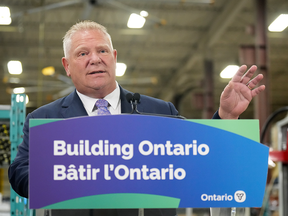As the dust settles from the US presidential election, Canadian Conservative leader Pierre Poilievre is making a bold move to salvage trade relations between Canada and the United States. In a recent interview, Poilievre outlined his plan to boost energy exports to the US, touting it as a "great deal" for both countries.
The Discount Conundrum
According to Poilievre, Canada’s trade surplus with the US is largely due to a lack of alternatives. With only one oil-export pipeline in British Columbia and limited liquefied natural gas capacity, most Canadian energy resources are shipped south of the border. This has led to a discounted price for Canadian commodities, which Poilievre attributes to Canada’s "pathetic" trade surplus.
Appealing to Trump
Poilievre is appealing directly to President-elect Joe Biden (or possibly President Donald Trump again) to approve the Keystone XL pipeline project and other resource extraction initiatives. He argues that this will not only benefit both countries but also help wean them off supplies from unfriendly states like China.
The Stakes
Poilievre acknowledges that if trade relations were to suddenly change, American workers at refineries would lose their jobs, and consumers would face higher prices. Instead, he advocates for ramping up the extraction of critical minerals that benefit both countries.
A Conservative Government’s Plan
Under a Conservative government, Poilievre promises to:
- Expedite resource project approvals: Poilievre has already held talks with the conservative leaders of hydrocarbon-rich provinces Alberta and Saskatchewan to prepare them for expedited approvals.
- Address US concerns about border trafficking: Poilievre vows to address U.S. concerns about border trafficking and military spending, emphasizing that a Conservative government would invest planned gains from energy-exporting strategies in Arctic security.
Conclusion
Poilievre’s "great deal" pitch is an attempt to salvage trade relations between Canada and the US by focusing on shared economic interests. While the proposal faces significant challenges, including Trump’s opposition to Keystone XL and concerns about border trafficking, Poilievre remains optimistic that his energy-exporting strategy can benefit both countries.
References



